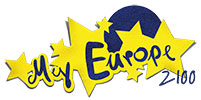Due to the 50 years jubilee of our magazine, we have launched a series of retrospective articles, where we meet again important personalities who have contributed to our magazine over the last 50 years. Seventeen years ago, Mrs Jane Hunter*, who is a renowned futurologist, explained her theories of the future Europe to us. Today, we are going to see if her visions of 2013 have become reality.
Q: In 2013, many of your ideas had to do with socalled Mega Trends. Would you like to explain why this topic is so important and why it matters to you?
A: Mega trends are various forces of development that impact economy, society, and personal lives thereby defining our future world and its increasing pace of change. Systematically acting on emerging ones helps to capture market opportunities, test risks, and promote innovation. The biggest challenge was and still is to adapt to a world in which the environment is always changing. In my opinion, if we wait for the consequences of global forces to happen or even ignore them, we will fail to seize the future.
Q: Please, give our readers a short abstract of the trends you envisioned seventeen years ago and compare them with today’s.
A: There are five mega trends, which I suggested at that time: economical and political changes, technological revolution, infrastructural developments, as well as transformed health care systems, and peaceful times.
Q: Could you give us a deeper insight into each of these trends? What is your personal evaluation of how your envisioned future has become reality, respectively, has not?
A: Beginning with the economical and political trends; the European crisis, which lasted approximately 15 years, has positively changed Europe’s economy, to my surprise. Through the established reforms, the EU has “rebuilt” itself. The governmental debts and deficits have been immensely reduced. Nevertheless companies in the former developing economies, particularly Asia, have made greater commercial progress in the last couple of years than any other European nation. However, if the sound economic recovery is not sustained, poverty will grow and the weakening of Europe’s middle class will accelerate.
Moving on to technological and environmental trends; 3D, digital, and online environments govern the daily life. As was easily foreseen, robots with artificial intelligence assist us in the everyday life. They have influenced sustainably industries, military, and transportation. What I did not anticipate was that robots have even become part of personal relationships.
I expected population and internet growth to result in immense increase of hackers trying to control companies or governments in order to make money or cause disturbance. However, it has not happened in that great extent. Security systems have extremely improved. Meanwhile, we even have replaced traditional soldiers with cyber-military.
My environmental prediction was wrong. I envisioned that we would abandon nuclear power and switch to renewable, green energy, e.g. solar power. Due to the increasing need for energy, the use of nuclear energy is a valid option beside the green energy. This is really a shame.
Let me further discuss the infrastructural advances; I had indeed correctly foreseen the developments in urbanization: mega-civilizations and mega corridors, e.g. emerging of gigantic highways. The acceleration of urbanization lead to expansion of city limits, which again lead to an expansion of subways like the Metro and Tube. Cities, countries and even continents are now connected.
I also would like to mention the important health care system changes. When I wrote the article on megatrends seventeen years ago our health system was a disaster. At that time, I still falsely believed in the treating of symptoms rather than prevention of diseases. But this system was unaffordable. Fortunately, today’s health model focuses more on early diagnosis and prevention of diseases, predicting future sicknesses and using nutritional therapies instead of invasive drugs. Digital health has been a crucial factor. Europe has been pioneering to develop a more preventive, affordable and personalised health system using diagnostic computer tools. This also helped Europe to overcome the financial crisis in the late 2017. This health system involves e.g. applications that help people explore health issues, or several help-yourself-kits that make diagnosis more accurate. Results are sent directly to the patient with the corresponding medical therapy suggestions. The test and results go to the electronic medical folder, where all medicinal history is stored in. A simply astonishing achievement!
We have come to my favorite and last topic; peace in the world. The perception is that we live in a world full of enmity, but looking back, e.g. World War II, we have never been so peaceful before. Already in 2013 we enjoyed rather pacific circumstances. Death rates caused by war and disease have dropped significantly and peace has been promoted even further. Who knows, we might be the first generation to finally experience world peace! *name invented
